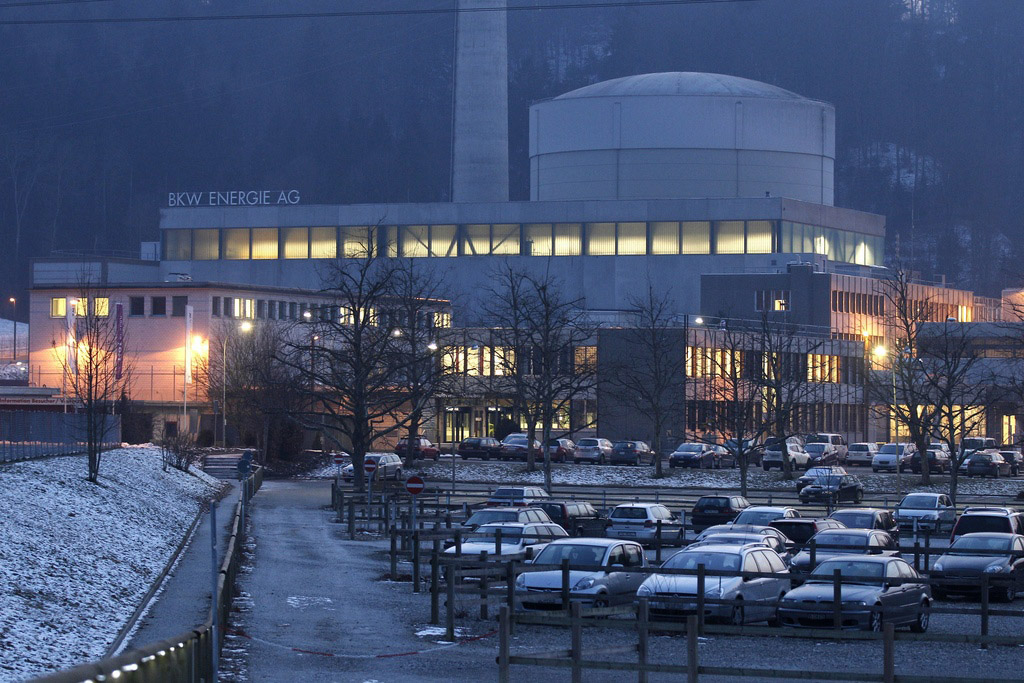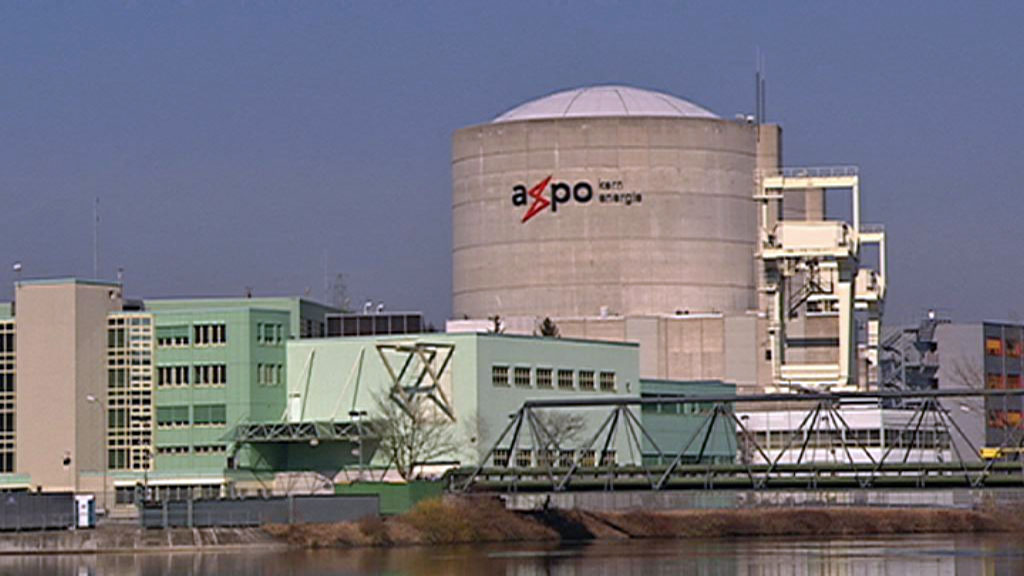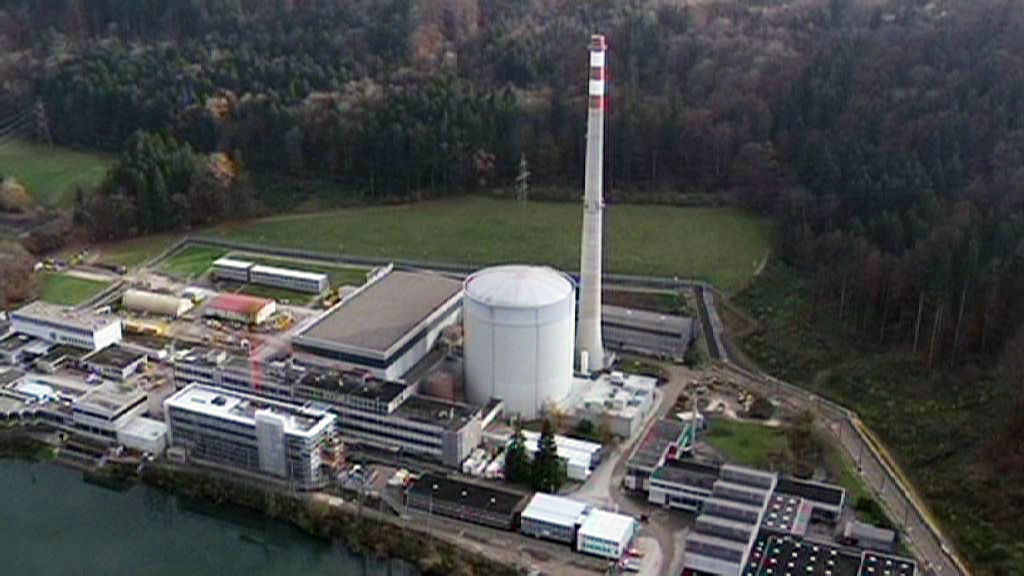Future of nuclear plant on shaky ground

The Mühleberg atomic plant near Bern will lose its operating licence at the end of June 2013 on safety grounds, the Federal Administrative Court has ruled.
The court accepted a complaint by local opponents of the plant against the indefinite extension of its licence by the environment ministry, granted at the end of 2009.
The 1972 plant, one of five in Switzerland, is run by BKW Energy and supplies five per cent of the country’s energy needs. Last September it was restarted after three months of annual checks and safety improvements.
Switzerland’s heavy reliance on nuclear energy came under intense pressure in the wake of Japan’s Fukushima nuclear disaster almost exactly a year ago, with the government ultimately pledging to abandon nuclear power by 2034.
The phase out plan was based on a reactor lifespan of 50 years but this week’s legal turn of events may mean a more rapid and costly exit.
Last year the government estimated that gradually phasing out nuclear power in Switzerland would cost SFr2.2-SFr3.8 billion ($2.4-$4.1 billion).
Weak points
In its judgment on Mühleberg, the court said various factors imposed a limit on the plant’s viability, including the condition of the reactor’s core shroud, which has fissures in it.
Other security questions cited were the inconclusive evaluations on security in the event of an earthquake and the absence of a cooling system independent of the River Aare.
Since December 2009, Mühleberg’s licence has been open-ended provided it met national nuclear safety requirements. The Swiss Federal Nuclear Safety Inspectorate is the national regulatory body with responsibility for the nuclear safety and security of Swiss nuclear facilities.
The court noted that the issue of security was too important to be Ensi’s sole responsibility. The nuclear inspectorate did not wish to comment on the judgment, according to the Swiss News Agency, referring questions to the environment ministry. The ministry said it needed to analyse the judgment before taking a position.
A BKW spokesman also said the company intended to closely study the 44-page judgment before deciding whether to appeal. The court’s decision can be appealed to the Federal Court in Lausanne.
Green power
The court’s decision has been hailed as a victory by anti-nuclear campaigners who swiftly called for the same action to be taken for Switzerland’s and the world’s oldest nuclear power plant Beznau.
Greenpeace called it “a stage victory for the safety of the Swiss population”, while the anti-nuclear organisation Swiss Energy Foundation (SES) said the verdict was a slap in the face for the federal authorities, whose work had clearly been called in question.
To be able to carry on operating the plant after mid-2013, BKW will have to submit a complete maintenance concept to the environment ministry along with an application for a licence extension specifying how long it plans to keep the plant working, the court said.
A BKW spokesman told Swiss television that work on such a concept was already under way since last year, the first part of which had been submitted to the nuclear inspectorate in August 2011. The inspectorate imposed a series of extra safety measures on Swiss power plants after the Fukushima disaster.
However the lawyer for the group that pursued the case against BKW – more than 100 local residents and an environmental group – said the decision spelled the end of Mühleberg. “I do not think that BKW is going to make such an investment within a year,” Rainer Weibel told Swiss television.
Shaky ground
With the future of Mühleberg now on shaky ground, the focus will shift to the Beznau I plant in canton Aarau, commissioned in 1969.
Critics say safety issues prove Beznau’s time is up, claiming the emergency power supply is unreliable, the reactor cover has corrosion problems and the steel container has cracks.
As for the country’s energy needs, electricity consumption is expected to continue to grow steadily until 2050 despite energy efficient appliances and other measures, according to recent predictions from the Federal Energy Office.
Switzerland currently has five nuclear reactors which generate about 40% of the country’s energy.
They are: Beznau I (commissioned 1969)
Beznau II (1972)
Mühleberg (1972)
Gösgen (1978)
Leibstadt (1984)
Recent Swiss nuclear policy is influenced by the Fukushima disaster in March 2011.
A magnitude-9 earthquake and tsunami knocked out reactor cooling systems at the Fukushima Daiichi nuclear plant, 240 km north of Tokyo, triggering meltdowns in three of the six nuclear reactors and radiation leaks. Japan faces a huge and costly radiation clean-up near the plant.
After the disaster, the Swiss government decided to decommission all the nuclear power plants starting in 2019 and ending by 2034.
It estimates the cost of phasing out nuclear power at SFr2.2-SFr3.8 billion ($2.5-$4.4 billion).
The government says the power generated by the plants will be replaced by hydroelectric power, renewable energy and combined gas plants among other methods.

In compliance with the JTI standards
More: SWI swissinfo.ch certified by the Journalism Trust Initiative



You can find an overview of ongoing debates with our journalists here. Please join us!
If you want to start a conversation about a topic raised in this article or want to report factual errors, email us at english@swissinfo.ch.